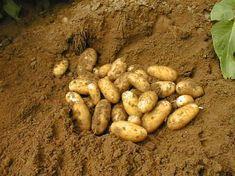
Irish potato growers could save more than £275/ha if they switch to a blight-resistant genetically modified (GM) potato variety, scientists claim.
Dr John Spink, a researcher with Teagasc, Ireland’s Agriculture and Food Development Authority, said one advantage of a GM blight-resistant potato variety would be a substantial saving for growers in the cost of blight control.
Annual losses due to blight in Ireland are estimated at £12m, with as many as 15 fungicide applications needed during the growing season.
Blight chemicals are costing Irish farmers up to £430/ha this year, but Spink says because blight-resistant GM potato varieties require far less spraying, the cost of chemicals could fall to around £60/ha.
Dr Spink is one of the lead researchers on the Environmental Protection Agency-approved Teagasc trial on GM potatoes, due to commence in Ireland this autumn.
Opposition groups to the GM trial argue that Ireland should remain GM-free to help preserve the country’s image.
An Taisce, Ireland’s heritage trust, said it was concerned that field trials on GM potatoes in an open-air environment might allow cross-pollination with other potatoes. Research on GM crops in Britain, it added, had shown a worrying decline in farmland biodiversity, where the numbers of bees and butterflies were found to be significantly lower in GM fields.
Gillian Westbrook, manager of the Irish Organic Farmers and Growers Association (IOFGA), said the decision to allow the Teagasc GM trial might have serious consequences for Irish food producers.
“We simply cannot on the one hand be marketing our green image and on the other hand growing GM crops,” she insisted.
The GM discussion in Ireland is mirroring that taking place in the UK, with the subject hotly debated at the recent World Potato Congress



